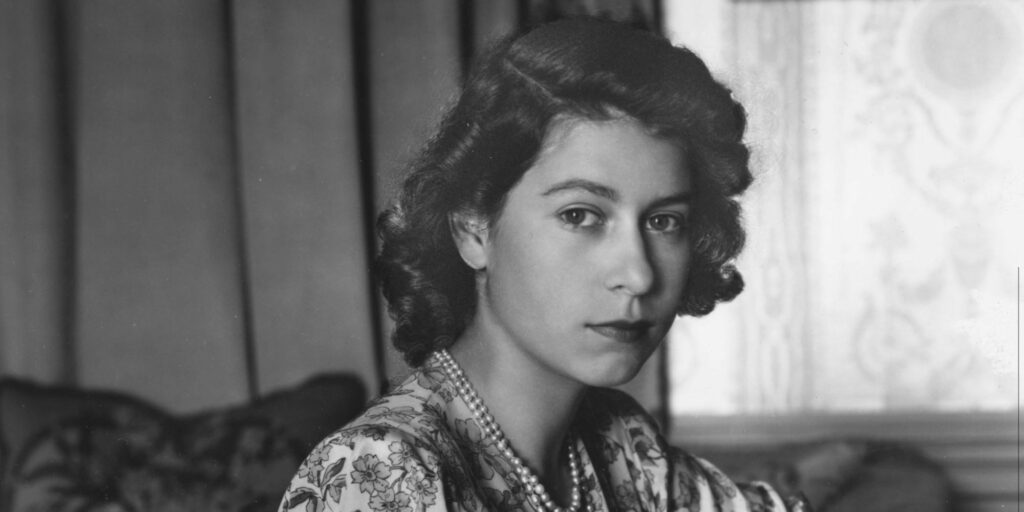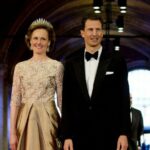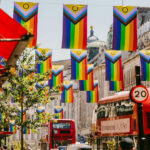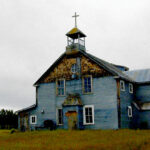Blog Post
Queen Elizabeth II’s reign was the afterglow of a Christian civilization
By Jonathon Van Maren
On June 13, 1981, gunshots rang out near Buckingham Palace. A 17-year-old who idolized the assassins of John Lennon and John F. Kennedy had fired six blanks at Queen Elizabeth, who was riding her horse in parade. He was swiftly seized by police while the Queen, who had no way of knowing the shots hadn’t been real, merely calmed her startled steed and resumed her place. It was the reaction of a woman who, as an 18-year-old princess, begged her father to let her join the armed forces and trained as a mechanic and military truck driver, the only female member of the royal family to do so. Eventually, she became the last living head of state who served in World War II.
Now, after 70 years on the throne, she is gone. Queen Elizabeth II, by the Grace of God Queen of this Realm and of her other Realms and Territories, Head of the Commonwealth, Defender of the Faith, died at the age of 96 at Balmoral Castle. With her, the twentieth century finally departs. We are poorer without her in a way that we are only just beginning to understand. Her death is, as one writer put it, another of “the successive snapping of the small tethers that still tied us back to another world.” That world has been gone for decades, but the stolidly smiling visage of Queen Elizabeth allowed us, for awhile, to pretend that it hadn’t. She was the afterglow of a vanished civilization.
As Brett McKracken wrote: “Queen Elizabeth II embodied dignity and class in an age of scandal; selfless duty in an age of expressive individualism; virtue and discipline in an age of unscrupulous moral decadence.” Andrew Sullivan concurred: “I’m trying to write a column and I find myself in tears. I fear that everything she exemplified—restraint, duty, grace, reticence, persistence—are disappearing from the world.” She was a living bridge to an era when such things were, if not common, at least expected. She was better than her times.
For over seven decades, the Queen was omnipresent. She was on all our money—old pennies I collected as a boy showed the young woman who ascended the throne at age 25. I am currently flying on a passport—my one last to say this—requesting that I be able to pass freely “in the name of Her Majesty the Queen.” In a little hotel in Zimbabwe miles from anywhere, I spotted a large photograph of the beautiful young queen and her handsome husband—autographed personally by them—framed behind the counter under a layer of fine African dust. Indeed, despite all the racialist babble from the usual suspects today, the Queen was beloved by millions the world over in a way airtight ideological minds can never understand.
It is easy to understand why so many progressive commentators and academics cannot bear to see this remarkable woman commemorated and mourned—it is because so many are grieving the passing of things they have worked so hard to destroy. During her first televised Christmas message in 1957, Queen Elizabeth called on her subjects not to cast aside “ageless ideals” and “fundamental principles which guided the men and women who built the greatness of this country and Commonwealth.” That message today sounds positively revolutionary. I will not quote any of the slanderous trash being tweeted about the Queen, but it was especially disappointing to see BBC Radio 4 talking about how the monarchy is about “white inherited privilege” and “at odds with a multi-faith society.”
I’ve often wondered what Queen Elizabeth thought as she watched the breakup of the British Empire (her first prime minister was Winston Churchill); the long, withdrawing roar of Christian Britain, where orthodox faith is now as rare as her virtues were; the complete colonization of the Church of England by the sexual revolutionaries. Towards the end, there was not much faith left for her to defend, and so instead she used her Christmas speeches to subtly remind her subjects of God and of Great Britain’s Christian heritage. She was an extremely private person, but she publicly asked her people to pray for her when she turned 21, and again when she was anticipating her coronation.
In fact, despite her grandfather’s hope that nothing would get between “Bertie, Lillibet, and the throne,” the only reason Elizabeth became Queen at all is because Great Britain would not tolerate the marriage of her Uncle David to a divorced woman, Wallis Simpson—and even those who think that ridiculous should shudder to consider how things may have turned out if Edward VIII had been on the throne when Hitler was rising to power. In God’s Providence, it was the country’s commitment to Christian values that ensured that George VI was king when the great contest between barbarism and Western civilization was fought. And Lillibet was, in every way, her father’s daughter. He would have been so very proud of her.
Our Queen has left us. God save the King.









“White, inherited privilige”? Is it a privilege to live a life of duty all your life? Really? I think, I realized what monarchy really was about when crown prince of Spain (now king) Felipe asked the permission of his parents to get married with a once divorced TV presenter. The journalist asked, what would have he done had his parents opposed his marriage. “It would have broken my heart, but I would have obeyed”. He had such a clear idea about sacrificing personal happiness to duty if you cannot have both. The only inherited privilige of the monarch is a life of duty and service. Queen Elizabeth showed it so well. Rest in peace!
A very fitting conclusion to another great individual and generation soon completely dismissed.
As a kid in England during the Blitz in 1940 (and subsequent raids throughout the war), the British people’s morale was boosted when the king (George VI) refused to copy what most crowned heads of Europe did, by fleeing to Canada. Instead he, and his wife Elizabeth (known as the Queen Mother) and the two children, Elizabeth and Margaret, not only stayed in England, but risked their lives: Buckingham Palace was bombed four times, once when the family was at dinner. The Queen Mother told an American journalist: “Now I can look the people of the East End in the face” [the East End of the city was most heavily bombed.] He asked her why they took that risk; why not at least send the two children to safety in Canada? Her answer: “The king will never leave his people. I will never leave his side, and the children will never leave me.”
I am from America and I feel the world has lost a very important person that will never be replaced. N=May she rest in peace.
Unfortunately, Queen Elizabeth was responsible for abortion-on-demand in the UK, since she granted royal assent to the bill at the time. Because of that, I object that she lived out Christian ideals.
I’ve written an entire column about that.